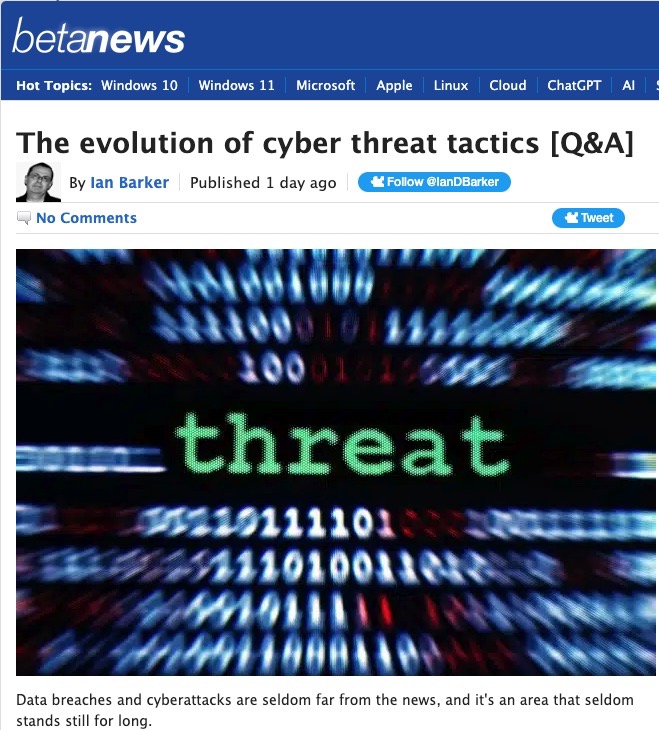In a thoughtful Q&A session with BetaNews, with Ian Barker, our CEO, Greg Hatcher, explored the current trends in cyber threats, the role of artificial intelligence in cybersecurity, the importance of proactive government involvement in cyber defense, and much more.
Hatcher addressed the rising security concern related to Microsoft’s Azure device codes being used to bypass Multi-Factor Authentication (MFA). He also explained the dangers of file systems like iso files coupled with embedded executables, and the attackers’ transition from using executables to dynamic link libraries (DLLs). Significantly, he examined the implications of Google’s newly created ‘zip’ TLD, which is increasingly being exploited by cybercriminals.
Hatcher also recognized the threat that AI tools, like ChatGPT, pose to cybersecurity. He argued that with AI’s capacity to generate custom software without requiring programming knowledge, its potential impact on cybersecurity could be significant, potentially providing cybercriminals with a vast swathe of data hitherto inaccessible.
Hatcher expressed the necessity for a more proactive role from governments in cyber defense. He also affirmed that cyber warfare, just as traditional warfare, is critical, and countries ignoring this fact will become increasingly vulnerable. Furthermore, Hatcher hinted at the evolving role of offensive cybersecurity strategies, taking the actions of China and the Biden administration as a case in point.
Lastly, Hatcher highlighted the importance of cooperation between government and the private sector in sharing cybersecurity intelligence, drawing parallels with the increased need for intelligence sharing observed post 9/11.
This Q&A is a must-read for anyone interested in the current and future state of cybersecurity and the increasingly sophisticated threats faced by businesses today.



